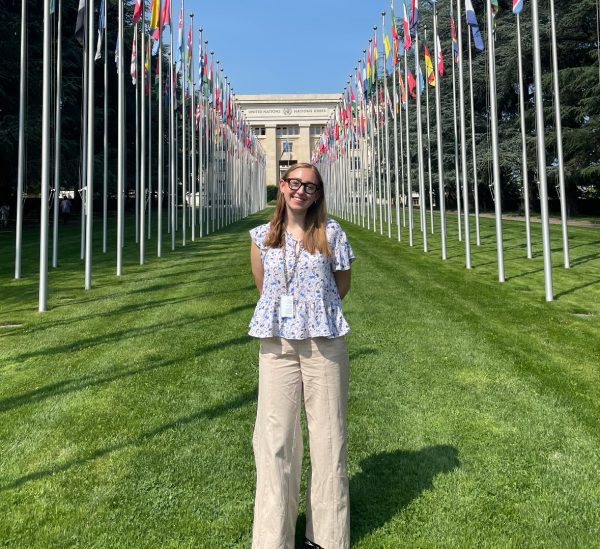Professor Hall on Indigenous Studies
Assistant Professor Ryan Hall has been a member of Colgate’s Native American Studies Department for three years and teaches courses on Native American history, global environmental history and borderlands history. Hall studied at the University of Oklahoma, which inspired his interest in Native American studies.
“I’m not Native myself, but Oklahoma is a place with a lot of Indigenous people, and after living around and working with Indigenous people and taking a lot of classes [studying the history of Indigenous peoples], I became convinced that everybody should know about [the field] and recognize that it is a critical field,” he said. “I think it’s important work whether you’re Native or not.”
Native People of the Great Plains, a Communities and Identities core class, is one course where Hall engages with this work.
“The heart of the course analyzes how outsiders have framed or depicted Indigenous people versus how Indigenous people have created their own communities and ways of life and belief systems,” Hall said. “Great Plains are a fruitful place for that because in American popular culture, plains people have become stand-ins for all Indigenous peoples. Teepees, headdresses and horses [pertain to] the plains, but they become the stand-in for all indigenous peoples. It’s about Hollywood and their decision for this particular culture group to become the stand-in for all culture groups.”
As a North American historian, Hall focuses much of his work on indigenous peoples of North America, but global indigenous history also informs his research.
“[Colonialism] is a global story and America is one chapter in that story,” he said. “The history of colonialism and the people that it has marginalized is applicable all over the Pacific, Siberia, Australia, New Zealand and Africa. I think that’s what drew me to [Indigenous history]. We need to put away that colonial map and move beyond thinking about Canadian and [United States] history and put Indigenous people at the core.”
In considering Indigenous Peoples’ Day, Hall emphasized the importance of honoring Native peoples and dismantling the celebration of Columbus Day.
“It’s kind of astonishing and disappointing that we haven’t [erased Columbus Day] as a society,” he said. “Columbus was not an individual worthy of celebration. This is somebody who forcefully enslaved people and was a violent person. He set into motion some really destructive consequences. From his perspective he accomplished something revolutionary, but I don’t think he is a person worthy of celebration. It is important to celebrate Indigenous peoples’ presence and history, especially since our society and our culture has systematically tried to erase it and pretend that [Native peoples] don’t exist or are insignificant. Indigenous Peoples’ Day is a reminder of the vibrancy of these Indigenous communities and people who have survived quite a bit. It would be a really positive step to acknowledge that instead of Columbus.”
In 2020, Hall published his first book, “Beneath the Backbone of the World”, which explores how the Blackfoot people, who are indigenous to Alberta and Montana, made a path for themselves by positioning themselves on the borderlands between the United States and Canada. He is currently working on a second book about the history of corruption in the Bureau of Indian Affairs.












